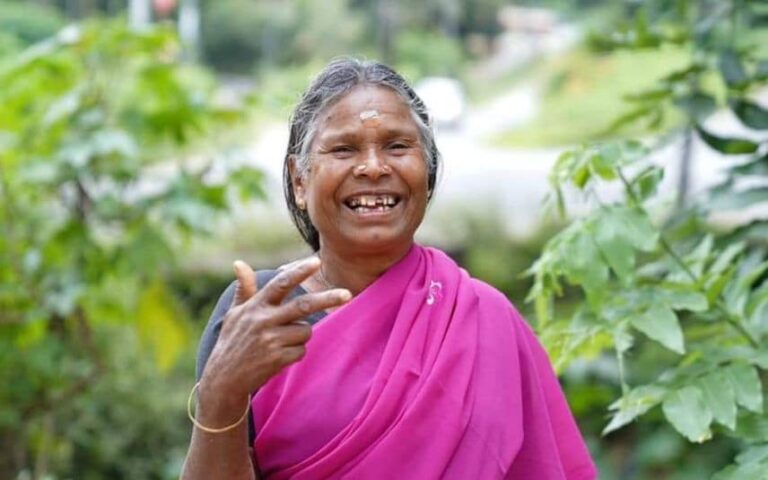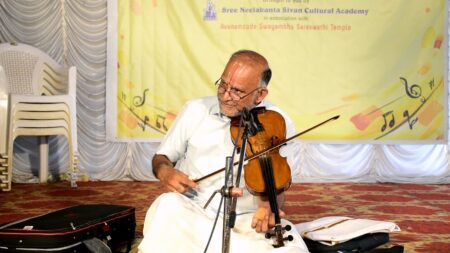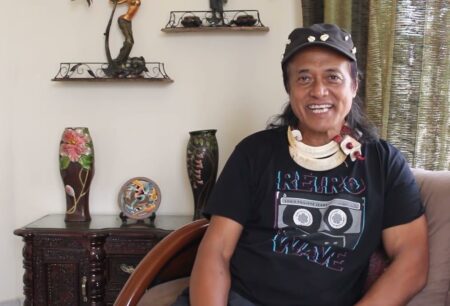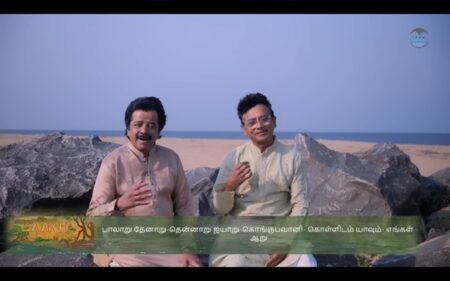The nation witnessed a fervent debate on the purity of music when tribal singer Nanjiyamma won the 2020 National Film Award for the best female playback singer
When Nanjiyamma, a member of the Irula tribal community, was conferred the national award for the best female playback singer, it turned out to be a surprise and many eyebrows were raised in the music industry, especially that of Kerala, her home state.
In fact, Kerala witnessed a fervent debate on purity of music when Nanjiyamma, a tribal folk singer, won the 68thNational Film Award for the song, which belongs to the tribal folk music genre, ‘Kalakatha Sandanameram,’ featured in the Malayalam movie Ayyappanum Koshiyum (Ayyappan and Koshy).
It has to be noted that, so far this award has been conferred upon established singers who sing for the mainstream audience. She also bagged the Special Jury Award when her home state announced the Kerala State Film Awards 2020.
One of the musicians from Kerala, Linu Lal, took to social media to explain the inappropriacy of Nanjiyamma being given the highest music award in the nation. Lal cited sacrifices and the life-long dedication of mainstream musicians to deny the prestigious award to Nanjiyamma.
According to Lal, such a dedicated bunch of singers felt insulted by the award going in favour of 64-year-old Nanjiyamma.
What makes Nanjiyamma’s music or singing inappropriate to be enlisted in the award-winning category?
Lal stated that Nanjiyamma should have been given a special jury award as she cannot sing at various pitches like all other trained singers. But not the national award for best playback singer. Lal conveniently placed the purity of the music and dedication of trained musicians for criticising the jury’s decision.
But when it comes to the purity of music, how does one judge if a particular genre of music is purer than the other?
Can admirers of Carnatic and Hindustani music dismiss jazz music and rock music or any other genres of music, for that matter, based on the level of purity?
Dedication and sacrifice as criteria
Music, like any other art form, has different genres and one cannot refute the importance of each of these variants and cannot judge a music with the yardstick that is used for another.
The argument that years’ long dedication and sacrifice should be taken as a criteria is flawed because being trained in a particular genre cannot be the only qualifying criteria to be a great singer.
Take the case of the late famous singer S.P. Balasubramanyam. Though untrained in Carnatic music, SPB, as he was fondly called, sang all the songs of the film Sankarabharanam which are challenging even for a trained Carnatic musician. Of course, training does have an impact, but it alone does not define the merit.
To be true to her, the negation of Nanjiyamma’s historic win has roots in the inherent belief in the right of a certain genre of music to be categorised as meritorious and superior.
As the famous musician T.M. Krishna observed that music is always not conceived only as an art form. It is placed on the high pedestal of religion and caste where the elements of upper caste discourses are always embedded within the practice, perception and reception of music.
Songs that reflect stories
The brainwashed masses simply found it difficult to cope with the type of music that Nanjiyamma brought to the public. The problem lies in the mass perception that folk or tribal or any indigenous music is inferior by nature.
It is not that Nanjiyamma became famous all of a sudden on a fine morning. The tribal lady had to endure so much to define herself as a singer and to assert her identity as a musician in the mainstream cinema media in stark contrast with her tribal background. Just like any other genre of music, her songs reflect the stories and culture of her community.
It goes without saying that the recognition for her music is an attempt to bring parity and inclusivity in the practice of the arts.
To borrow T.M. Krishna’s words, it is a kind of social re-engineering as Nanjiyamma’s recognition encourages people to think and rethink the way they perceive music.
Stratification of music into pure and impure is a part of the brutal social order that divides humans in the name of caste, which India has been religiously adhering to for hundreds of thousands of years.
Canonization of music and attributing a homogenous nature to it are all part of the collective social psyche that subscribes to the conventional elitist notion of a universalized, superior strand of music.
The jury conferring Nanjiyamma with this award is a historical decision as it was indeed an attempt to abandon the mainstream practices and to invite a talented but marginalized singer to the limelight, revealing the hitherto unexplored potential of sounds and rhythms which were unfamiliar to the mainstream music lovers and musicians who swear by the so-called purity.
Identity politics
A tribal woman in her modest attire singing, with all her energy, a song that she composed, and the prestigious national award coming on her way can be displeasing to many such worshippers of music.
When other South Indian singers like Dr K.J. Yesudas or S. Janaki or Shankar Mahadevan won the national award, it did not surprise the common folk. Their musical identity stands in match with the version of the music that people are used to.
Nanjiyamma’s award annoys a few people because she and her music defy the mainstream conventions of music and musicians and she, as an individual and as a singer, does not conform to the popular expectations of a great musician.
One must remember the innumerable occasions where K.J. Yesudas spoke about him not being allowed to enter the famous Guruvayur Temple of Lord Krishna in Kerala though he had sung many mellifluous devotional songs of that deity. This cannot be considered as a Christian singer’s urge to visit the god ‘for’ whom he has sung many songs. It is a deliberate attempt to belong to the Savarna mindset of the musical fabric of Kerala where music is always considered as a Brahminical/elite cultural product.
To her merit, Nanjiyamma proclaimed her individuality and the essence of her musical existence without playing any identity politics. She has no plans to find a place in elitist ideological dimensions that care more about a musician’s identity. Thus, questioning Nanjiyamma’s eligibility to win the award becomes problematic.
The antagonism to her music is nothing but an attempt to enforce an aesthetic erasure of marginalized art forms of communities that are on the social periphery.
Not aesthetic vandalism
Through her song, Nanjiyamma brought her community’s life to the mainstream. She is not a novice singer. She also rendered her voice for another movie, Velutha Rathrikal (White Nights), and also for a documentary film.
She has many songs to her credit. All these songs are composed by the illiterate tribal woman and all these songs in their various pitches and tunes shed light on the intense impulses of her culture and her community’s musical traditions.
The award for Nanjiyamma is a pioneering move to eliminate the amplifying inequalities in arts and to navigate towards a more inclusive culture where the arts do not discriminate between the artists and the art.
In other words, it is a revolutionary move, underlining the Ambedkarite stance of “social endosmosis”, where ideas, values, knowledge and privileges are naturally shared between and across people in a society.
However, a few viewed it as an attempt to encourage aesthetic vandalism. As T.M. Krishna rightly pointed out in his Magsaysay address, the people at the social periphery demand “access to the architecture of opportunities, rights and power-sharing”.
This holds true in the case of Draupadi Murmu, the new President of India and also with a tribal background. And it is true in the case of Nanjiyamma, too.
Rather than politicizing the award, it has to be accepted as a welcome move to dissipate the social and cultural imbalances and inequalities because social endowment can no longer be the property of the elites.
Her recognition is an assertion that music can indeed be an equalizer.





4 Comments
Nice …
Thanks Ms.Rajani!
Congratulations for your article on the National Film Award to Nanjiyamma , yes she does matter a great deal. Sadly her critics forget that it’s a National Film Award & not an award for music or for being a vocalist.
As I have been a member of several National Film Award juries I second the judgement of the August jury for having selected Nanjiyamma. What her evocative song has done is to have lifted the level of the film, drawn the attention of the viewers rivetting them to the screen, which is perhaps the most important function of the audio track in the film.
Moreover it has certainly made the award truly democratic and brought it out of the rut into which it’s often confined to.
Thank you for reading the article and of course for sharing your thoughts. Great attention to details. Glad to know you.